Why UFO Conspiracists Have So Many Opinions About ‘Angel Hair’
The mysterious silky substance is the source of much speculation.
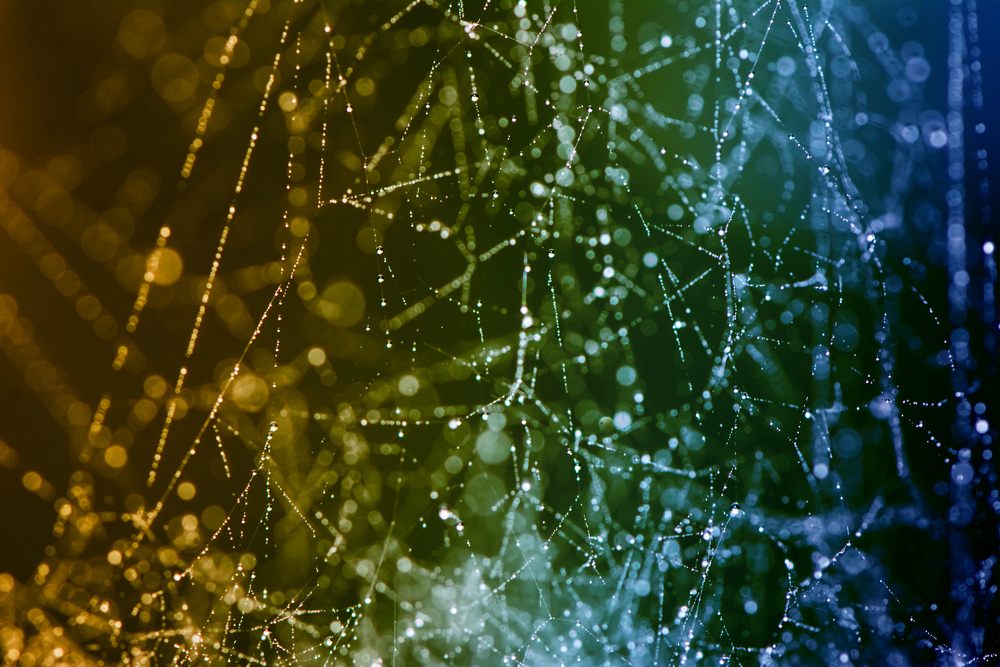

It was 1999, and the middle of the week in the sparsely populated desert state of Western Australia, when a man known only as Peter made a phone call to Australian UFO Registry. He was alarmed—after all, he was seeing “tonnes of white threads” floating down from the sky, covering paddocks, trees and power lines as far as he could see.
But what was it?
Peter didn’t know. When he collected some of the material, he noted that it wasn’t “cotton, nor sticky, nor web.” It was an instance of what is known as “angel hair”.
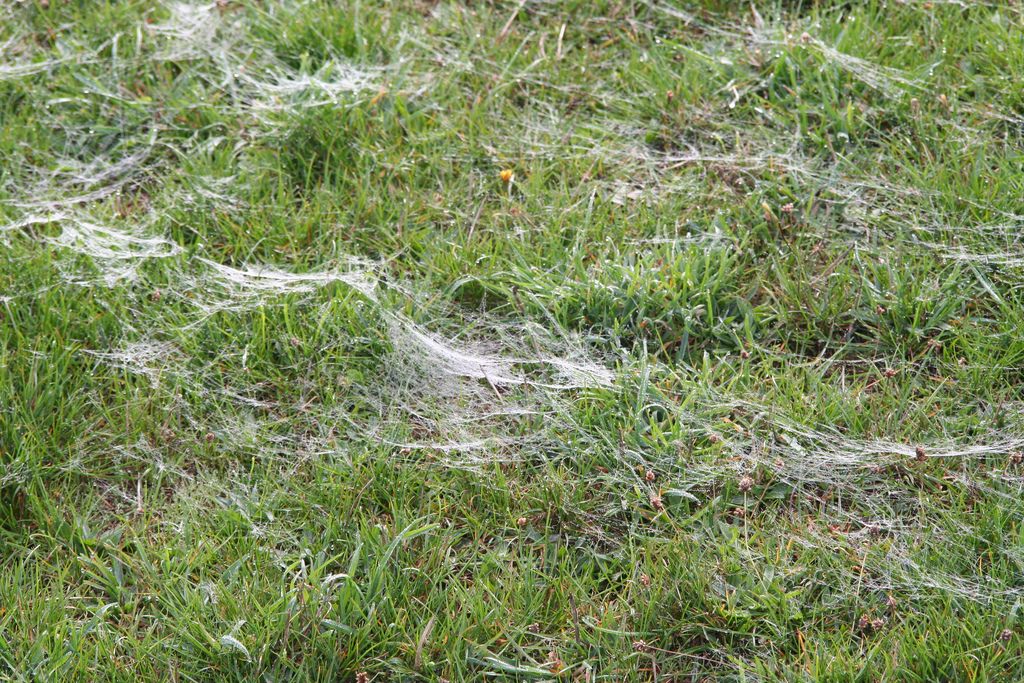
In the 1960s, the United States Air Force funded an investigation into UFO phenomena in response to public pressure. The resulting Condon Report, published in 1968, examined angel hair under the auspices of “Materials allegedly deposited by UFOs,” and defined it as “a fibrous material which falls in large quantities, but is unstable and disintegrates and vanishes soon after falling.” The report concluded that, in several of the cases examined, “the composition or origin of the ‘angels hair’ is uncertain.”
The mystery didn’t last long in Peter’s particular case, however. A few days after his call, a local entomologist reported to the area newspaper, the Esperance Express, that his car was covered with hundreds of baby spiders. He explained that the white thread, or angel hair, was the result of spiders flying through the air.
This phenomenon is known as ballooning. And is “very common” among small spiders, Macquarie University’s Professor Marie Herberstein says, “as a way to disperse from where they hatched from the cocoon.”
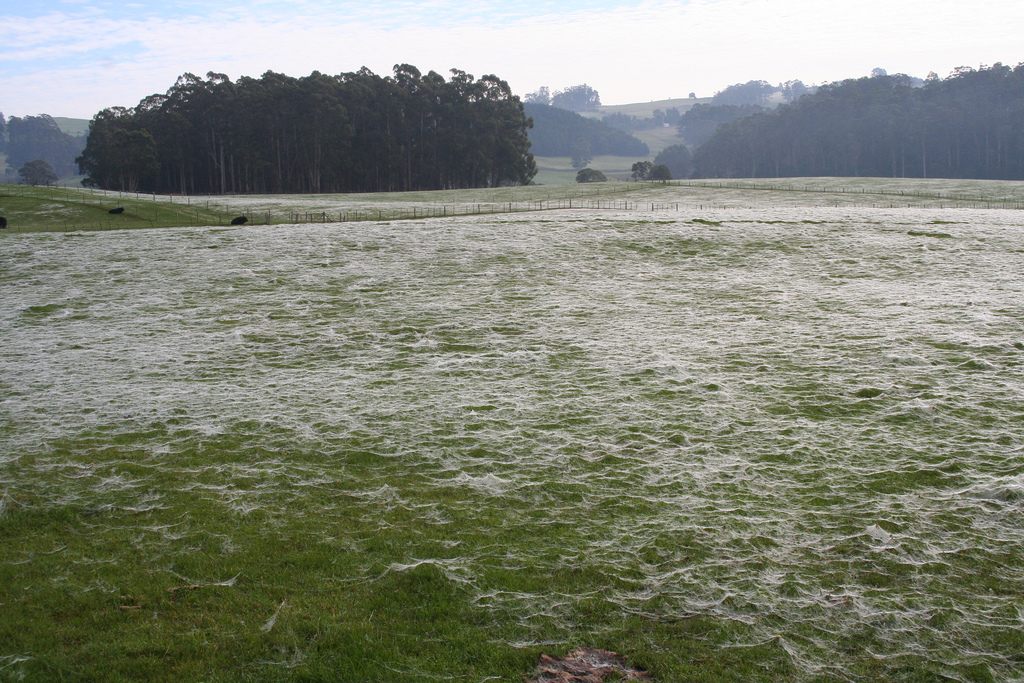
“The animal lifts its abdomen and extrudes a piece of silk (still connected to the spinneret),” she explains, “and eventually the wind catches the silk and lifts the spidering off carrying it away. Sometimes the spidering can cocoon over kilometres.” It’s particularly common in Australia, where several native species of spiders are known to balloon.
Case closed on angel hair? Not so fast, say ufologists and conspiracy experts, many of whom contend that the threads have extra-terrestrial associations. Cases of the falling thread are neither historically nor geographically isolated. In 1561, when there were reports of a “celestial phenomenon” in Nuremberg, angel hair was one aspect of the occurrence. And UFO reports often accompany instances of the falling thread.
UFO researcher and pilot Brian Boldman conducted a major review of angel hair in 2001, citing the existence of 225 cases of angel hair between 679 AD and 2001. Boldman’s contention is that while some cases of angel hair may be due to spiders, others are potentially extra-terrestrial events. He bases this argument on the fact that, according to his research, “Fifty-seven percent of angel-hair cases involve UFO reports, a significant number, which strongly links the two phenomena.”
While Boldman doesn’t explain how angel hair may relate to the UFOs, other ufologists have attempted to explain their relationship. These paranormal experts argue that angel hair is ionized air sleeting off an electromagnetic field created by a UFO.
It’s worth noting however that not all ufologists agree. Alejandro Rojas, the Director of Operations at the UFO investigation site Open Minds, says that “I have not seen a case that I feel strongly demonstrates angel hair as something unknown.” He cites spiders as a common cause.
Tasmania floods: Ballooning spiders fleeing soaked ground find refuge in treetopshttps://t.co/NtRzlagABC pic.twitter.com/biL86WZWMf
— ABC News (@abcnews) June 8, 2016
The problem with conclusively arguing where all angel hair comes from—or what it is—is that the substance tends to disappear soon after forming. This means that in some cases everyone from scientists to conspiracy theorists have to take the word of those who witness it. Of course, scientists can prove that spiders are the root of many a case, but conspiracy theorists point to the fact that the substance isn’t always the same.
In 1950s France, angel hair was described as “great flakes,” while in 21st century Australia, angel hair was encountered as a silky blanket. Adding to the abundance of theories around the hair is that many historical incidents were only briefly reported, making them ripe for modern speculation. It is worth noting, however, that the “vanishing” quality of angel hair is consistent with the spider explanation. As Professor Herberstein explains, “the silk does not dissolve, but just breaks into smaller pieces until we no longer recognize it as pieces of silk.”
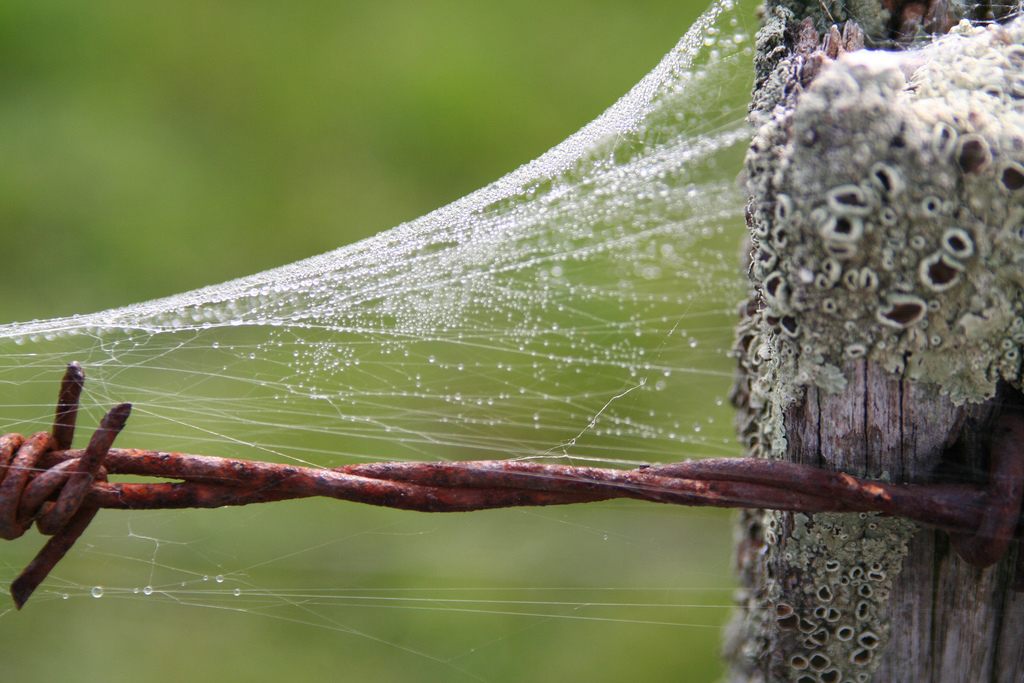
Nonetheless, the lack of clear testing of many of the cases has meant conspiracy theories have flourished. For some, angel hair is proof of chem-trails. This claim is bolstered by test results of the hair, which have sometimes shown traces of metals. As one commenter, ‘Wayne’ writes on the website Geoengineering Watch, “The next time you see these in your yard get a sample and go have it tested. The test results will show metallic and not a spider web trail which is made from a completely different material … The truth is scarier than fiction.”
Not everyone is quite so dramatic, with many acknowledging most incidents may in fact be “just” flying spiders. Secret government plot, airborne spiders, or visiting aliens? One thing’s for sure—angel hair is more than a little freaky.


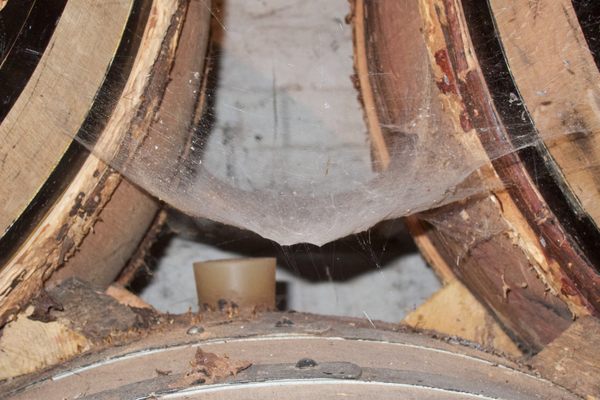





Follow us on Twitter to get the latest on the world's hidden wonders.
Like us on Facebook to get the latest on the world's hidden wonders.
Follow us on Twitter Like us on Facebook